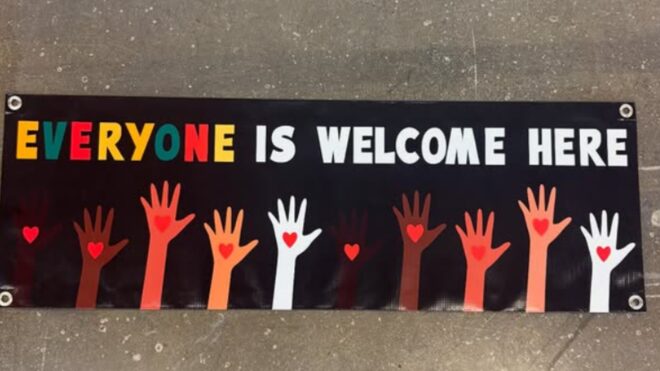
A mother and content creator on Instagram recently shared a video clip of a podcast she hosted with a visiting guest. The clip from The Mom Room Podcast, has now been viewed over 219,000 times on TikTok and has more than 27,000 likes on Instagram with hundreds of moms adding comments. The video clip talks about "the mental load" of motherhood. But she says an aspect that’s not talked about a lot are the countless hours moms spend researching and looking up topics related to parenting.
“For the most part it’s moms who are following parenting accounts, who are listening to parenting podcasts. So we’re gathering all these tools to be able to manage certain situations with our children like whether it be a meltdown or tantrum, or bedtime struggles and that is also like a huge invisible load like you're the one that is you know taking the time to learn tools and strategies to parent and your partner might not be doing the same,” podcaster and mom Renee Reina says.
What is the ‘mental load?'
The mental load of motherhood has been discussed more in recent years than ever before, shining a light on the work that moms do that is unseen, besides the obvious caregiving tasks of daily child care or school drop-offs/pickups, for example. There are lunch bags that have to be packed, school folders that need to be checked, clean clothes, socks and shoes that need to be set out, and the burden of it all largely falls on moms.
Most of us do all of these tiny, behind-the-scenes tasks, without a complaint, or even a thought, but it all definitely contributes to the mom burnout.
Nearly everything we do as moms requires a level of mental organization and planning that's exhausting.
Even a task as "simple" as cooking a meal for the family requires forethought and preparation. We have to look up recipes, making a list of ingredients needed, and then shop for groceries, all before the meal gets cooked.
Then you add on planning for activities such as playdates, birthday parties, sports registrations, family trips, and anticipating needs such as staying on top of doctors' appointments and milestones and clothes that no longer fit. It's no wonder moms are mentally tired.
But there's one particular aspect of all of this Reina says no one talks about.
On top of all these tasks, Reina points out that many moms also spend time researching "tools and strategies" to learn how to handle certain challenges and struggles with their children.
After taking the time and energy to research and learn how to handle difficult parenting situations, that information often then has to be relayed and taught to the partner, Reina explains.
“So then now you’re relaying that information to your partner and you’ve already done all the work gathering that information. Nobody talks about that part of it," she says.
It's important for parenting partners to start sharing the load.
Partners can discuss the areas to divide and conquer, and the area's one parent is OK with taking over if they are receiving the help they need in other areas, Reina suggests.
“It is perfectly OK for one parent to be the ‘researcher,’ but the other parent needs to step up in other areas,” Reina told HuffPost. “When I do bring things up to my husband, I never react in the moment when I am already irritated or stressed because I know my delivery won’t be the best. We always have discussions about these things when we’re alone and calm.”
Clinical psychologist Ashurina Ream, who is also the creator of @psychedmommy, contributed to this discussion as a guest on Reina’s podcast. Ream recommended sitting down to discuss all the duties of parenting and household tasks to figure out how to share the load better, reported HuffPost. Parents can start by writing tasks down and assigning them.
Reina suggests a divide and conquer strategy to help balance out the division of labor within families.
Reina told HuffPost that while she primarily researches how to handle parenting situations, her husband takes care of other parts of the parenting mental load by handling school correspondence and scheduling appointments.
Many mothers reached out in the comments section on Reina’s video echoing this frustration and highlighting what a huge issue this is.
One user commented: “Yes. I literally have to coach my husband through toddler meltdowns.”
“Love my hubs, but THIS is the hardest for us," wrote another user. "The mental load I carry is heavy…all for him to then send me one article/social suggestion every 6 months that I sent him months ago and adds 'we should try this'. Stop. Just stop. Please stop.”



